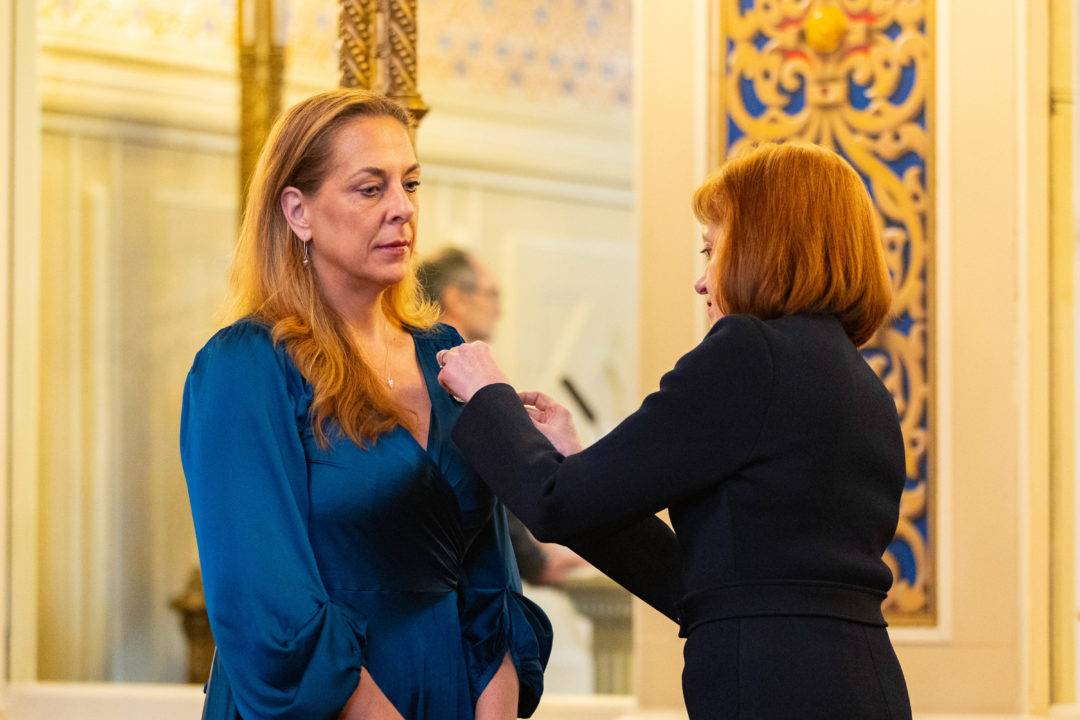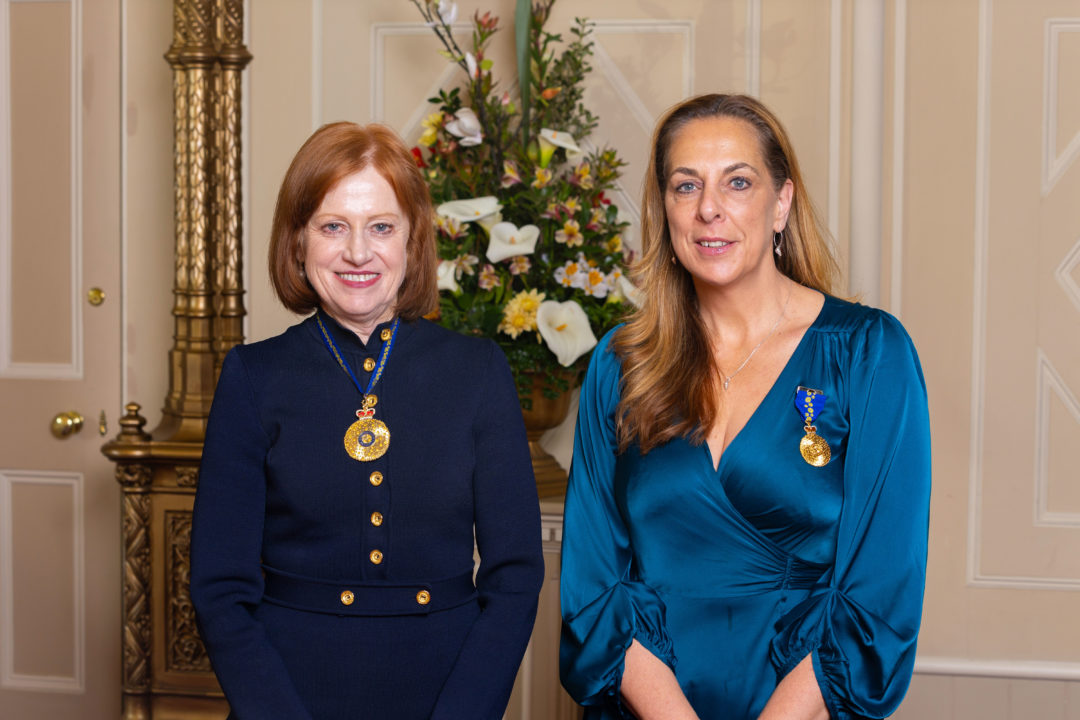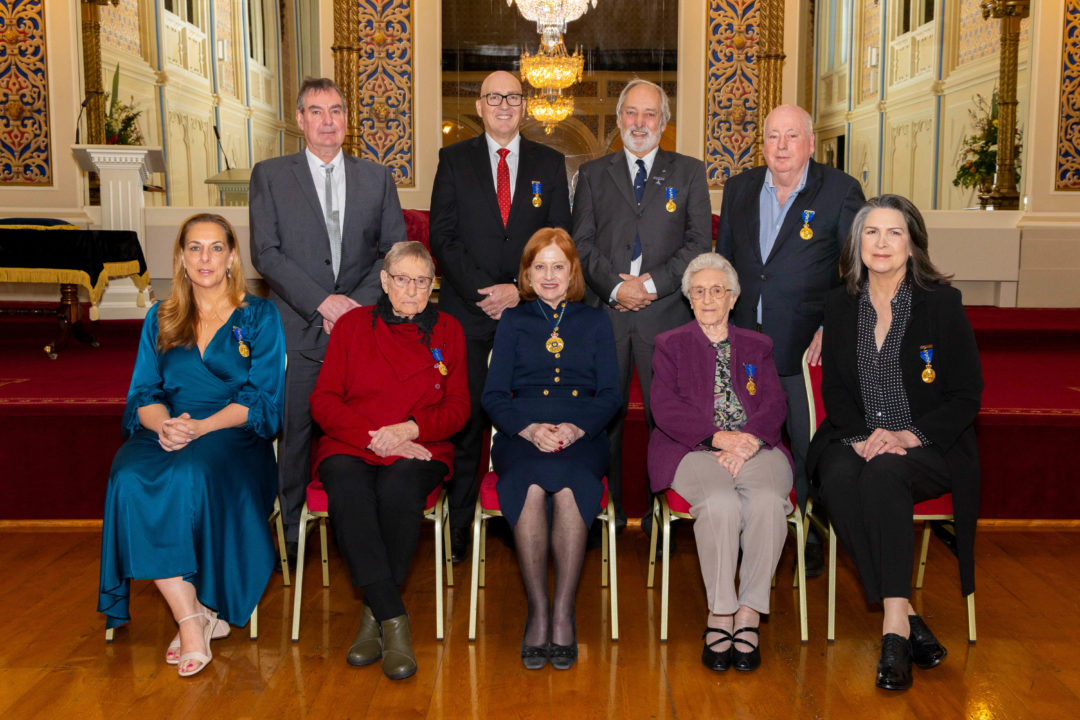Building on our global reputation as a leader in climate action, a team of more than 45 academic and professional staff spanning 14 areas across UTAS has come together to create the university's first climate change-focused MOOC.
The 20-hour Massive Open Online Course (MOOC) is called ‘The Climate Shift: Exploring Science, Empowering Action’, and is now available to the public at no cost.
View the new MOOC online now: www.utas.edu.au/climate-mooc
The MOOC takes an innovative approach to delivering science-backed information about the climate, making the knowledge of UTAS experts more accessible to a diverse audience.
MOOC participants will find a multidisciplinary approach that covers the various facets of climate change, encompassing environmental, economic, social, and technological perspectives with course modules hosted by IMAS researchers Dr Ed Doddridge and Professor Delphine Lannuzel.
Modules include the fundamental science behind climate change, human influences that contribute to climate change and the impacts of climate change on our polar regions, weather patterns and global communities. We also explore strategies to mitigate climate change and how we can achieve net-zero, and the adaptation of species and ecosystems.
Participants can engage in a range of content types including written content, videos and student-led elements. They’ll also be encouraged to listen to podcast components while out in nature, and to apply practical tools at home and in their own communities.
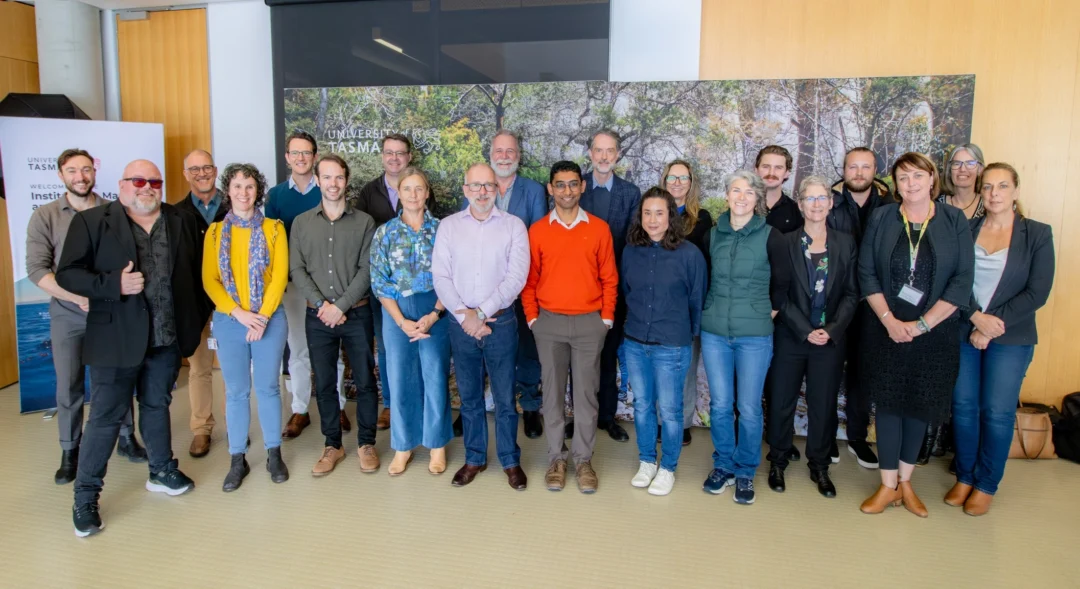
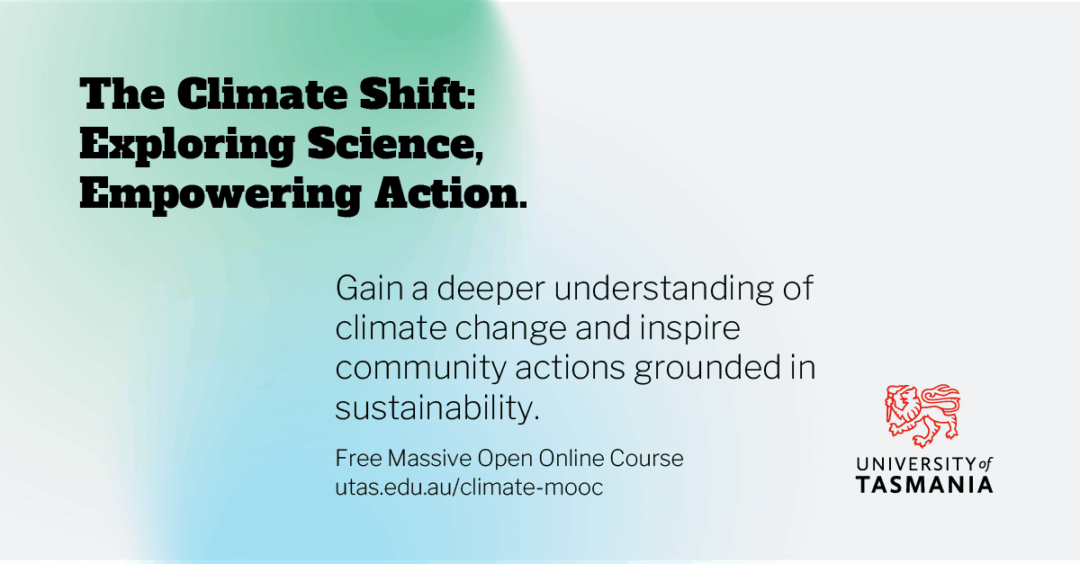
Oceans are at the forefront of many new climate-related projects, but the speed that these projects are being developed and expanded is outpacing the ability to govern them effectively – and manage their potential impacts on marine ecosystems and communities.
A new study published in Nature Climate Change highlights the wide variety of marine-climate interventions proposed or already deployed across 37 marine systems – and shows that the speed of innovation is outstripping the ability to manage it responsibly. This includes verifying their real value in capturing and storing carbon dioxide over time, and ensuring appropriate regulations are in place to prevent unintended marine ecosystem impacts.
“Our rapidly changing climate and warming oceans have created a clear and urgent need for innovative actions to sustain marine ecosystems and the communities that depend on them,” said lead author, Associate Professor Emily Ogier, who is a marine sociologist at the University of Tasmania’s Institute for Marine and Antarctic Studies (IMAS), and member of the Centre for Marine Socioecology (CMS).
“Actions being explored range from climate mitigation actions such as blue carbon programs and other marine carbon dioxide removal technologies, to climate adaptation actions including coral and seaweed replanting, and breeding marine species that are more tolerant to warming water.
“But while trials are underway across a variety of these new marine-climate interventions, the effectiveness of many projects is not clear, there is limited planning, and the potential to cause harm is under-regulated. So we’re seeing a ‘pacing problem’,” Associate Professor Ogier said.
The study team surveyed 332 marine-climate project practitioners worldwide about this rapidly emerging field. They gathered information on the types of projects being developed or deployed, and their locations, stages of development, climate goals and governance arrangements.
“We found there were limited efforts to understand and solve the pacing problem between marine governance and climate intervention actions,” said IMAS marine ecologist, co-author and CMS Director, Professor Gretta Pecl.
“We were able to classify the major types of marine-climate intervention projects, and to extend existing frameworks for research and innovation to include responsible governance – and it revealed that governance arrangements are not keeping up with the pace of innovation.”
By Dr Helena Solman (Wageningen University)
Summary: As offshore wind expands in the North Sea, balancing renewable energy development with marine biodiversity protection becomes critical. This seminar explores the governance challenges and opportunities in integrating offshore wind with ecosystem conservation. It examines policy frameworks, stakeholder dynamics, and digital innovations shaping biodiversity-friendly offshore wind planning. Drawing on fieldwork with experts and stakeholders in the North Sea Region, I highlight best practices, regulatory gaps, and emerging digital solutions for sustainable offshore wind deployment. Finally, I propose a collaborative and ecosystem-based governance approach for offshore wind and biodiversity and would like to open up a discussion about issues and solutions for offshore wind and biodiversity in Australia.
A huge congratulations to CMS Director Prof Gretta Pecl for being inducted into the 2025 Tasmanian Honour Roll of Women, for her service to science, technology; environment.
Professor Pecl AM is an internationally recognised marine ecologist whose work has transformed our understanding of climate change impacts on marine ecosystems.
Her research has influenced environmental policy and strengthened connections between science and the broader community.
“It’s an honour to be recognised among the incredible women on the Tasmanian Women’s Honour Roll, who contribute so much to our community,” Professor Pecl said.
“I’m especially glad to see scientists celebrated, as Tassie is a true powerhouse of research.”
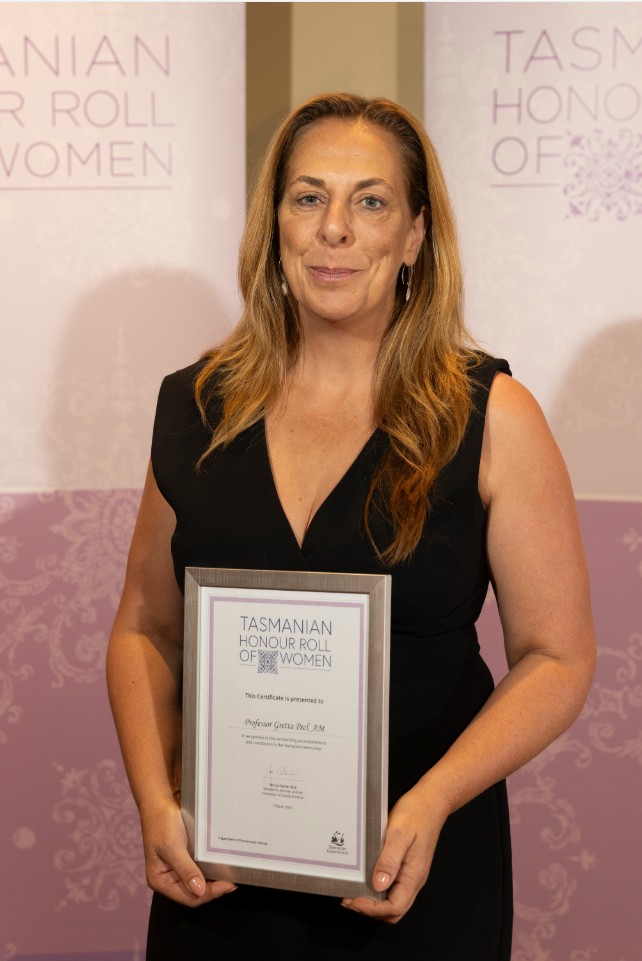

Telstra NATSIAA People’s Choice Award Winner – Dean Greeno for tunapri milaythina muka, to know Sea Country through making
Dean Greeno a truwulway pakana man of lutruwita (Tasmania) has been announced as the Telstra People’s Choice Award winner, in the 2024 Telstra National Aboriginal and Torres Strait Islander Art Awards Telstra (NATSIAA), presented on Larrakia Country by the Museum and Art Gallery of the Northern Territory (MAGNT) in partnership with Telstra.
With the People’s Choice award receiving an impressive total of 1,167 votes, Dean Greeno secured the majority of the People’s Choice votes. The top three artists were rounded out by Thea Anamara Perkins’ mesmerising painting Return and Mardawi Lakun (Sister Weavers) with their incredible weaving Thukabi, meaning turtle in Ngarrindjeri. Mardawi Lakun is a collaboration between Aunty Ellen Trevorrow, Temeika Campbell, Bessie Rigney, Elizabeth Rankine and Margeret Sumner.
Dean’s artwork is a testament to the memories and teachings passed down through his family and his win reflects the ongoing support and appreciation for Aboriginal and Torres Strait Islander art in Australia.
The 2024 Telstra NATSIAA exhibition was visited by more than 142,000 people during the exhibition period of seven months.
The Telstra NATSIAA is the longest running Aboriginal and Torres Strait Islander art awards in the country. The Telstra NATSIAA is also proudly the longest running and most prestigious art prize of its kind in Australia.
This year, 72 finalists from across Australia were selected from a total of 230 entries.
Telstra NATSIAA artists share in a total of $190,000 with the prize money for the major Telstra Art Award $100,000 and each of the category awards $15,000.
Quote from Dean Greeno
“Thank you to all the staff, supporters and patrons of the Telstra NATSIAA and MAGNT. I would like to recognise the Larrakia and Larrakia Country. I would like to thank my family, my community and my Country, Sea, Land, and Sky, for building the stoicism, the resilience and fortitude that allowed me to assemble this artwork based on the continued walk of my people to truth telling, treaty and self-determination.
My experience during the Awards will remain with me for the rest of my life. It has been an amazing, immersive and thoroughly rewarding experience as a pakana artist.”
Quote from MAGNT Director Adam Worrall
"Congratulations to Dean Greeno for creating a work that has captured the hearts and minds of our audience. His win reflects his brilliant creativity and stands as a testament to the continuous cultural practices in lutruwita and beyond. Today we celebrate Dean and his achievement, well done!"
For more information, please visit www.natsiaa.com.au.
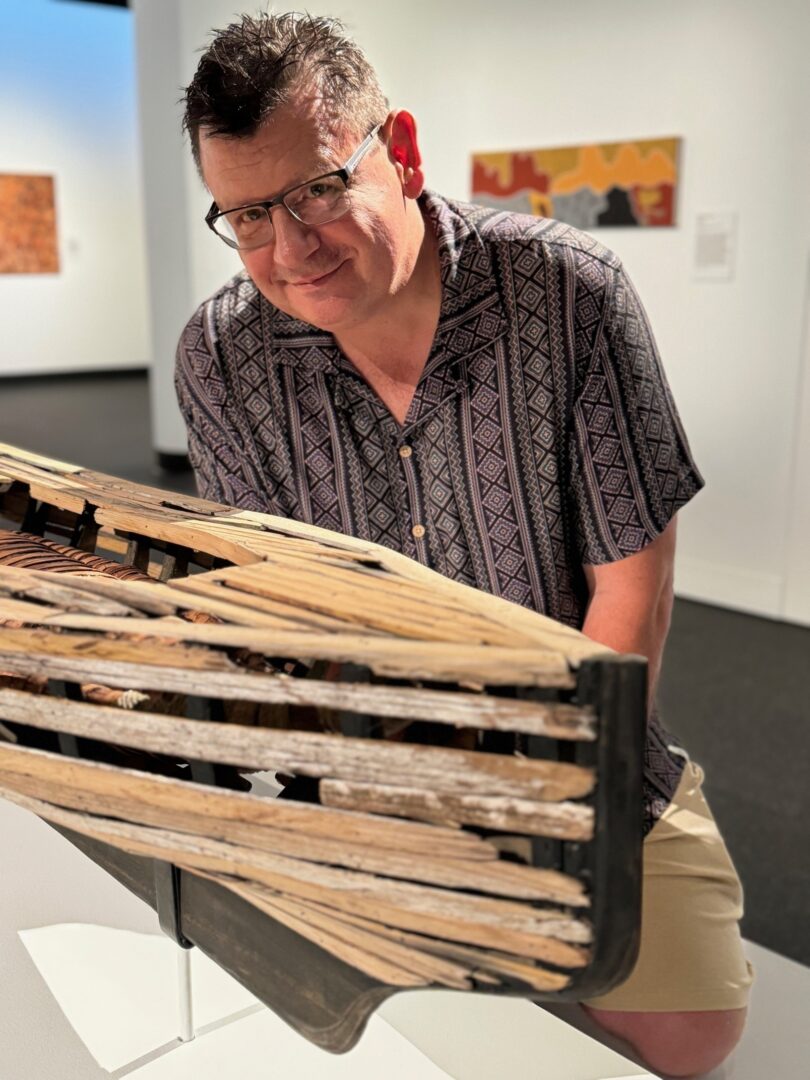
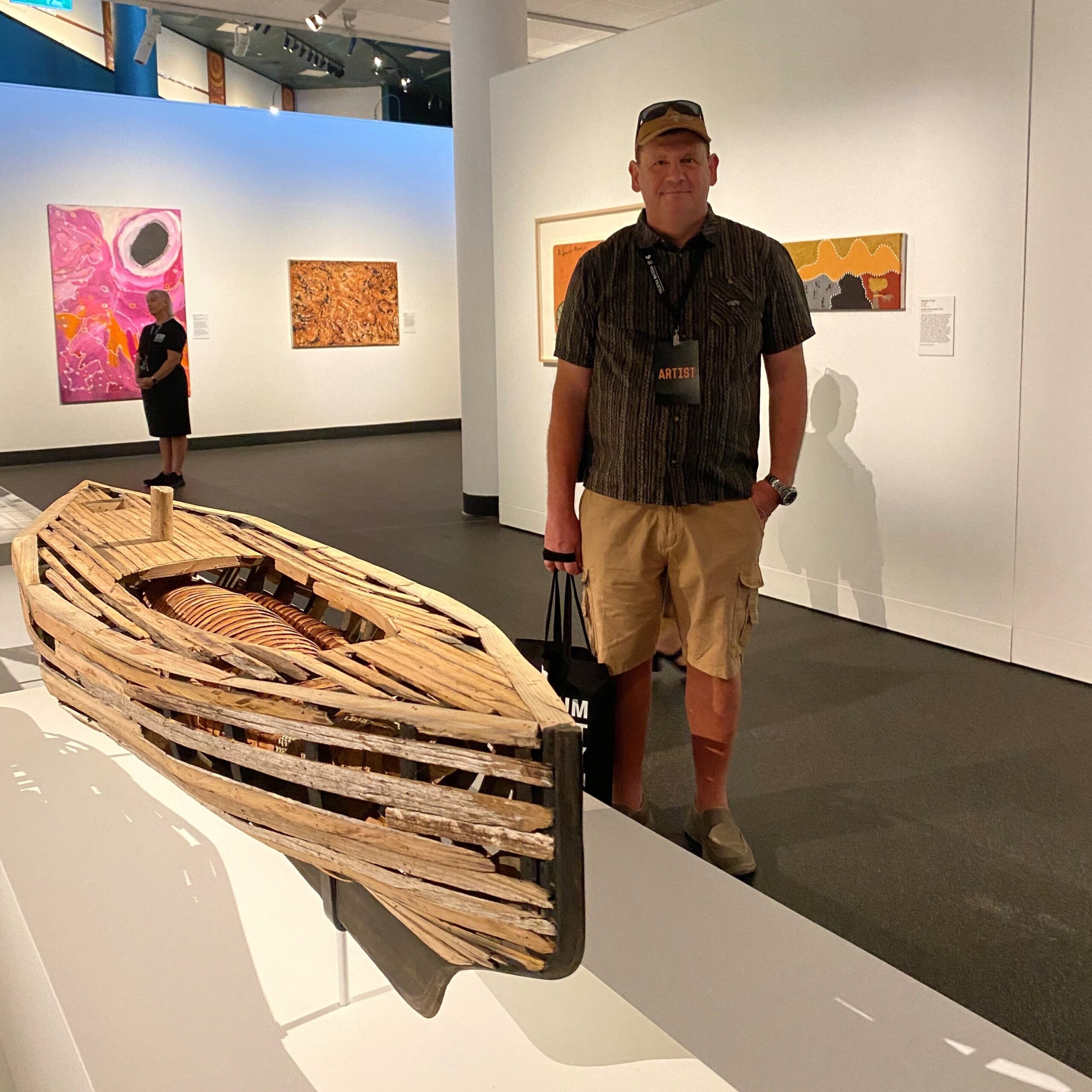
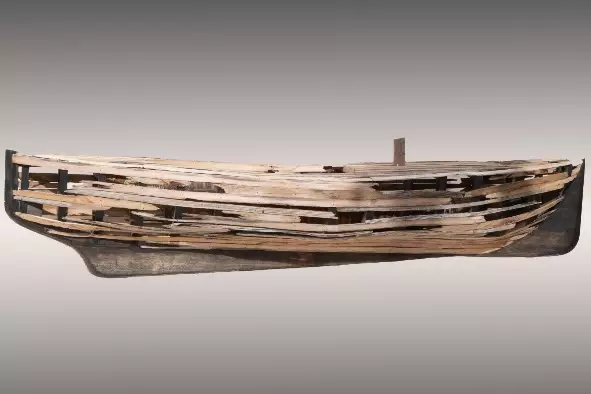
Congratulations to the 'UQ Indigenous research leadership on climate change and health team' (which includes CMS Director Prof Gretta Pecl), who won the University of Queensland’s 2024 Faculty of Medicine Award for ‘Spirit of Reconciliation’.
A UQ-led team of Aboriginal, Torres Strait Islander, and non-Indigenous scholars was commissioned by the Australian Government to prioritise Indigenous voices in climate change and health, particularly for future IPCC reports. After fieldwork on remote Country, the team produced a report shared with the IPCC and launched in Australian Parliament. Their work highlighted the importance of Indigenous knowledge in addressing climate health impacts, contributed to more inclusive climate reports, and strengthened collaboration and culturally appropriate research within the Faculty.
More details are here: https://medicine.uq.edu.au/faculty-medicine-excellence-awards/2024-faculty-medicine-excellence-awards
This work was also supported by DCCEEW.
The CMS held our annual showcase event in Hobart/Nipaluna on 28th October 2024, with over 160 people in attendance from over 40 organisations, ranging from our members and students, to government representatives, industry representatives, researchers, and traditional owners and custodians.
The CMS Showcase 2024 event was structured around a series of panels with researchers, government, industry representatives and traditional owners (i.e. allowing participants to shape discussion and agendas), short presentation sessions from our interdisciplinary researchers (i.e. brief overview of the current/future CMS work and research), as well as interactive workshopping focused on identifying risks, opportunities and critical marine issues for the years ahead. The day created opportunities for open dialogue and Q & A throughout the day, generating fruitful discussions and allow for important networking and collaborative relationships.
Please view the CMS Showcase 2024 Report
Please view the CMS Showcase 2024 Agenda
We would like to thank all who attended, presented, and supported this event, and we can't wait to host our Showcase event again next year!
You can also view the agenda and report from last year here: CMS Showcase 2023: Connections and collaborations to ensure a thriving future ocean
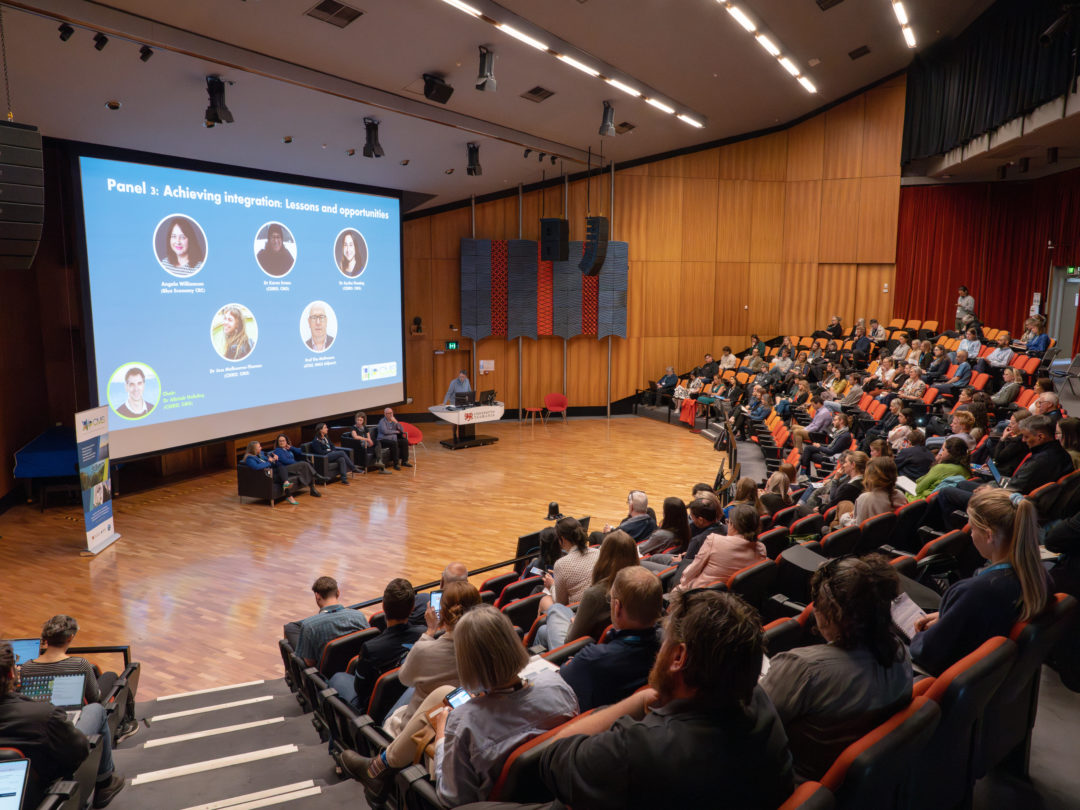
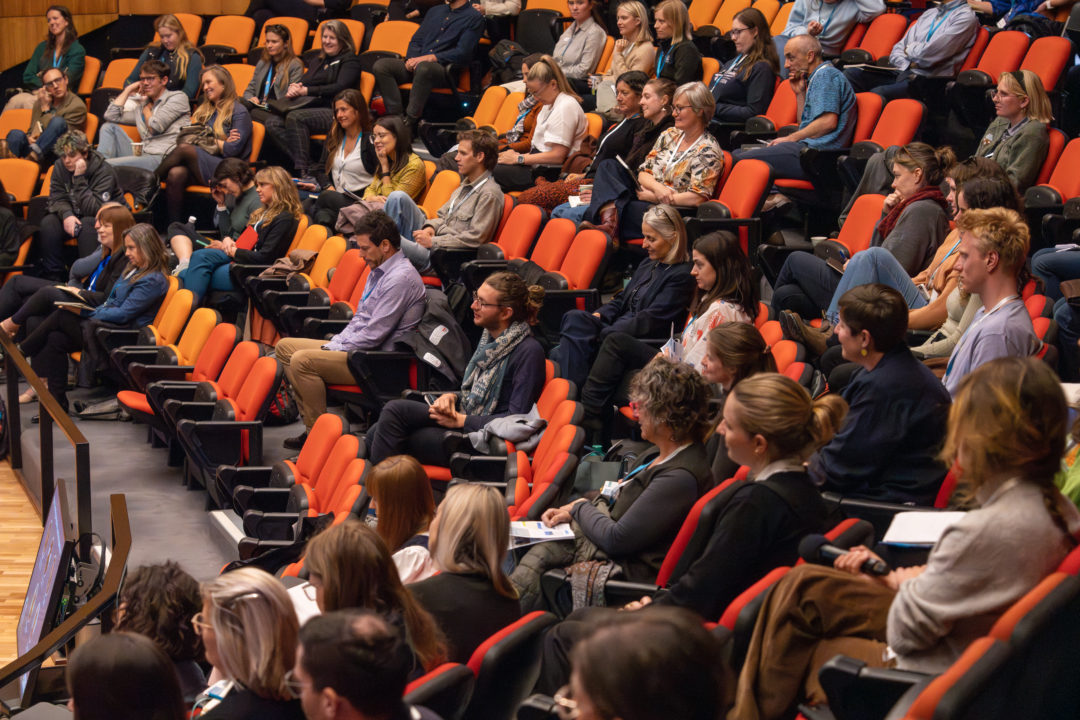
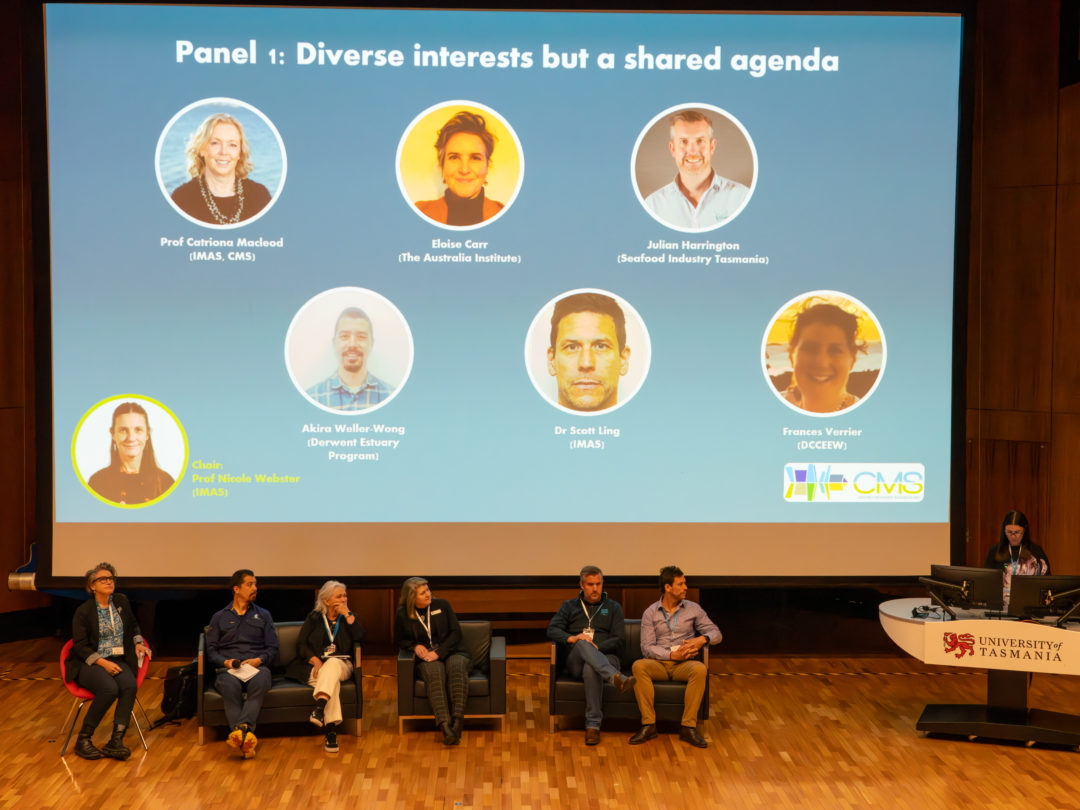
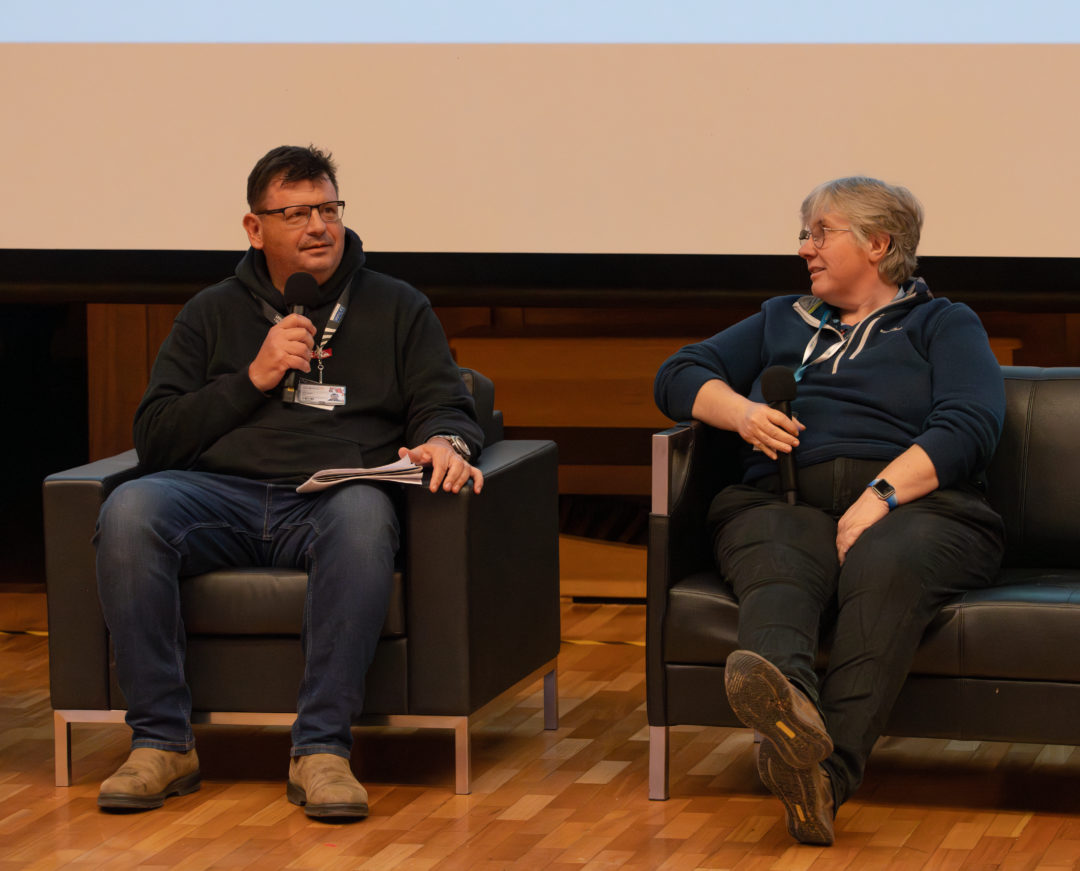
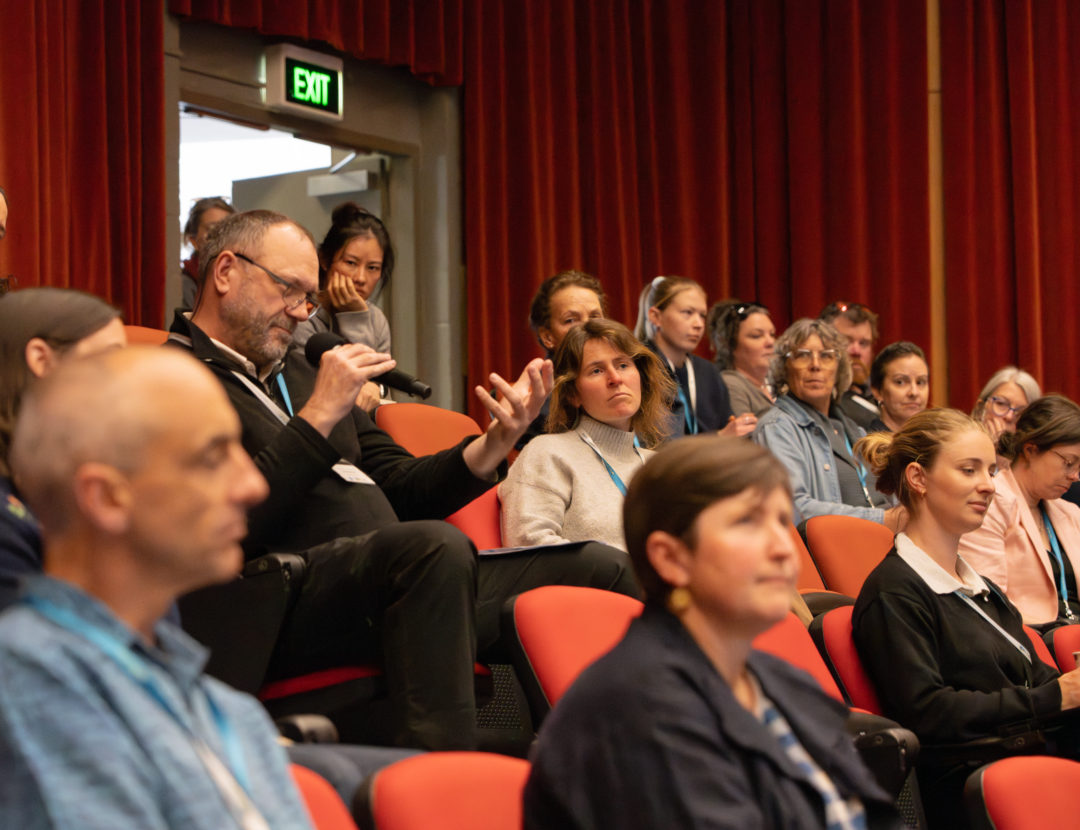
A huge congratulations to Dr Ben Arthur on receiving the Tasmanian STEM Communicator of the Year Award at this year’s Tasmanian STEM Excellence Awards. Ben received this award for “delivering creative STEM storytelling from the classroom to the boardroom to engage people across Australia on a wide range of marine issues”.
Ben became a CMS member earlier this year, and is also member of the Tasmanian Marine Science Engagement and Extension Group that is hosted by CMS.
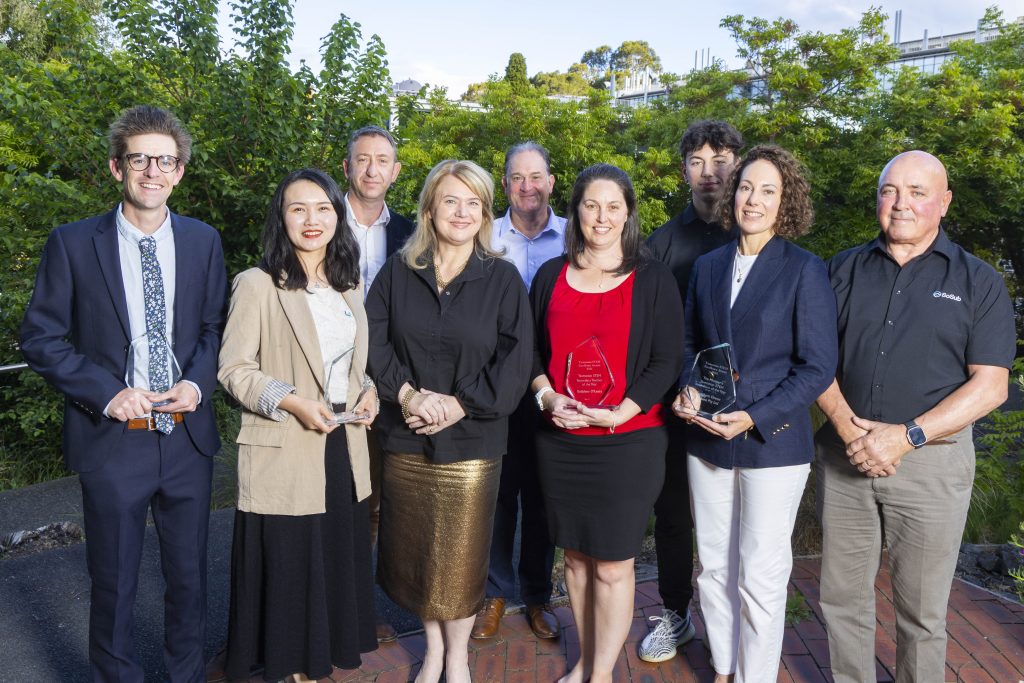
CMS Director Prof Gretta Pecl (AM) recently had a Q&A session with the Marine Stewardship Council (MSC), during Seafood Directions 2024 in Tasmania.
Prof Gretta Pecl discusses her career and mentors, as well as topics like climate change, food security, and protecting marine ecosystems. Gretta highlights the need for adaptive marine management and reflects on the emotional challenges of climate work and the hope she draws from younger generations advocating for change.
Check out the interview here:
MSC Blog post: In conversation with Professor Gretta Pecl AM | Marine Stewardship Council (msc.org)
MSC Fresh Catch Newsletter (Oceania): Oceania Fresh Catch Newsletter (mailchi.mp)
MSC video interview: https://youtu.be/DBsuI0fZEwM
CMS Director Prof Gretta Pecl recently received her medal for her appointment as a Member of the Order of Australia (AM), as part of the King’s Birthday 2024 Honours List.
The Investiture Ceremony was held at the Tasmanian Government House in September 2024, with Her Excellency the Honourable Barbara Baker (AC) awarding the medals.
